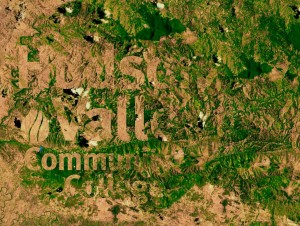Leftover Chartwells food restores jungle(April Fools!)
Lucifer MacCheese
Copy Eater
Hudson Valley food waste composting has revitalized 3,000 acres of deforested Amazon Rainforest land.
“Miles of fruit platters and cold ziti are saving the planet,” said Pete Zia, coordinator of Hudson Valley Community Composting.
Villagers of Bur Rio Bole, which has a population of about about 400, have seen Hudson Valley meals 4,000 miles away for nearly two years. Every weekend since 2014, the villagers stand around volunteers unloading tons of food waste in compost pails dropped from an aircraft.
Since composting started, about 200 species of plants have started growing across once-barren fields.
“We’ve seen plants grow faster than ever before,” said villager Chup Sen Gawok. “Food waste has become our life.”

Less than a decade ago, the tribal village was isolated from chicken tenders and only heard about combo meals passed down through folklore.
In 2011, land outside the village was cleared by Global International Worldwide Logging Corporation. With much of the land cleared, villagers, who have relied on the local ecosystem for nearly 10,000 years, struggled to find food. They scavenged for scraps of logger’s meals, provided by Sodexo.
Visiting the region with Volunteers for Better College Resumes, Zia, liberal arts student, started looking for a long-term solutions to reforest the land. Remembering leftover cookies and half-filled pans of chicken tenders in his first year at Hudson Valley, Zia considered the food waste enough to restore soil fertility through composting.
In coordination with Chartwells, Zia started his own non-profit organization shipping food waste to Brazil for composting.
Unfinished food and unsold perishable food items make up half of the organization’s compost supply.
Additional waste comes from club meetings and events, such as Fallfest. Zia recognizes turnout miscalculations on event orders to be a new leading contributor to the cause.
“This caters well to our future,” said Reed Sikell, Student Activities composting assistant director.
Students have joined the composting effort across campus. In an effort to increase food waste, new clubs, focused on pushing away membership such as the Democratic Socialist Investment Club, Tuition Hiking and Climbing Club and the Racist Literature Society have sprung up.
“The less students we have to feed, the more plants we will be able to grow somewhere else,” said Pam Pulls, vice president of the Pro Acne Student Union, formed in December.
All of the new clubs host meetings in locations such as the Daycare Center, Stadium Classroom Building and TEC-SMART in Malta. Meetings typically last four to eight hours covering indecision over events and conflict over club leadership positions.
Along with new organizations, the Student Senate has pushed for an increase in food waste at events. Last month, the programming board pushed to hold Cultural Pride Night in the K lot to increase the number of food waste.
The organization has increased their weekly meetings to cater to 1,000 students. Most of the food delivered has been placed underneath tables to limit visibility.
“When we’re leaving behind trays and pans of food, I like to think that we’re leaving behind a new path, not only for future senators, but for the environment,” said Cliff Tover, food waste committee chairman.
